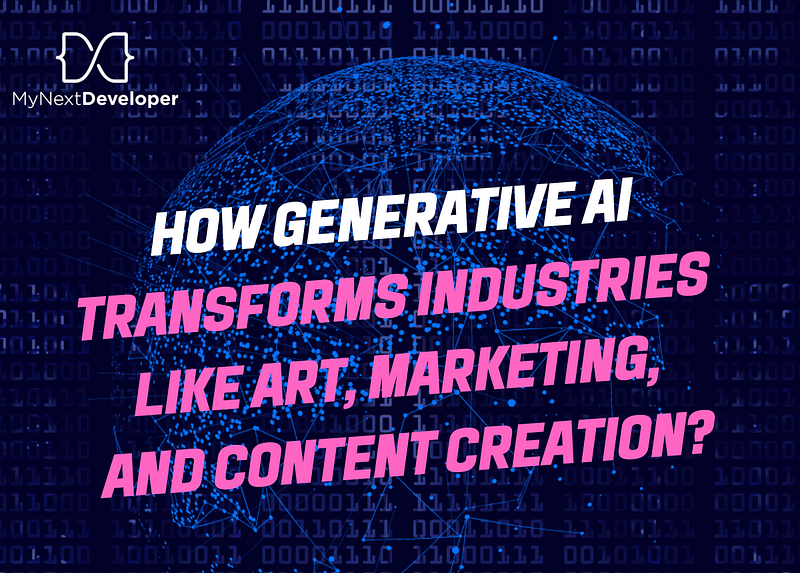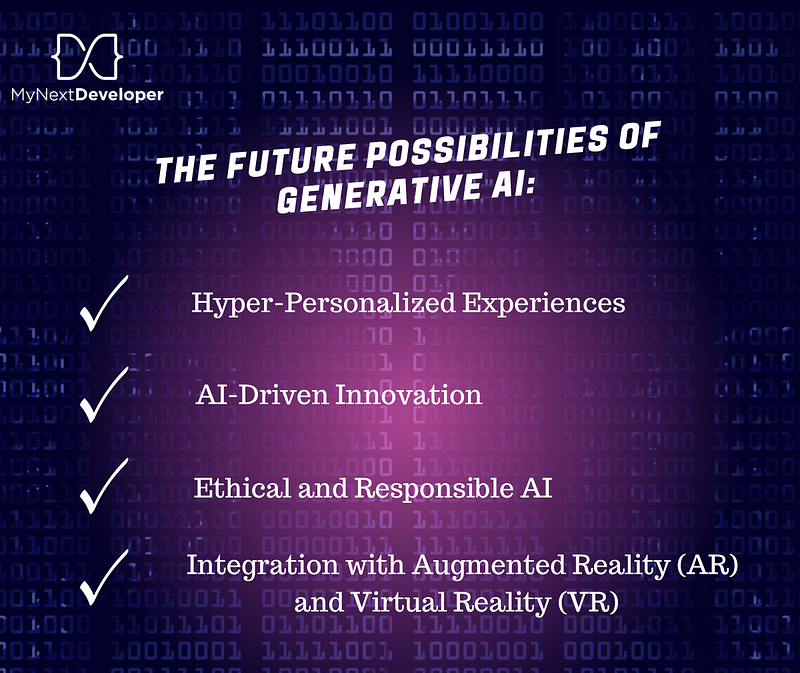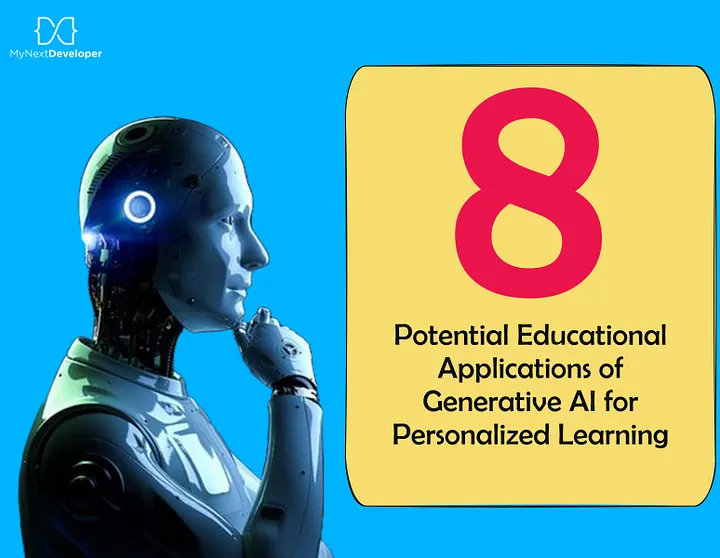How Generative AI Transforms Creative Industries?
How Generative AI Transforms Creative Industries?

Generative AI is pushing boundaries like never before. It is progressing in a new era of creativity and efficiency across various industries. These systems can use advanced ML algorithms. Creating original content, streamlining workflows, and opening up unexplored possibilities become easier.
This blog will explain how generative AI is set to revolutionise industries like art, marketing, and content creation. Moreover, we will analyse the future possibilities as well.
Generative AI in Art
Generative AI tools can generate original artwork based on textual descriptions. Artists can use these tools to explore new styles, compositions, and concepts that might not have been possible through traditional means. This creative augmentation is the perfect blend of human creativity and Artificial Intelligence. It results in curating innovative artistic expressions.
AI-driven art platforms allow less experienced individuals to create high-quality artwork. This makes art more accessible. It allows a broader set of audience to take part in the creative process. As per Artnet, the first AI-generated artwork was produced in 2018. Named “Portrait of Edmond de Belamy”, it was sold for a whopping $432,500 in New York. Much to everyone’s surprise, it surpassed its estimated price of $7,000-$10,000.
Generative AI can also assist in restoring damaged artworks. It predicts and recreates the missing parts based on existing patterns and styles. This capability is invaluable for preserving cultural heritage. With that, maintenance of the integrity of historical monuments is also possible.
Generative AI in Marketing
In the domain of marketing, generative AI can analyse consumer data and patterns. It leads to the creation of personalized marketing content. It includes — customized emails, advertisements, and social media posts. All these are altered to suit the needs of individuals. It helps to create more effective and engaging marketing campaigns in the process. A study by McKinsey suggested that businesses using AI for personalized marketing can see an increase in revenue by 5–15% and improve efficiency by 10–30%.
Creating many versions of the same advertisements is possible with the help of AI. Not only this but performance testing and optimizing them in real-time becomes easier. This reduces the time as well as the cost involved in manual campaign arrangement. It increases the entire efficiency of marketing strategies.
AI-powered chatbots and virtual assistants can provide personalized customer support. They can answer queries, and guide customers through complex purchasing processes. These AI systems can simulate human-like interactions. Thus, it improves customer satisfaction and engagement.
Generative AI in Content Creation
Tools such as GPT-4o and Gemini AI can produce high-quality written content. These generative AI tools can also help in editing and proofreading. It ensures consistency and writing tone. This, in turn, reduces the workload of human writers and editors.
AI can act as whatever the user desires. From co-writing or brainstorming to generating ideas, plotlines, and dialogues. This collaborative approach can lead to more diverse and appealing content. Such content is difficult to curate through traditional storytelling.
Generative AI can generate text, images, videos, as well as audio content. This capability is a boon for content creators. It produces multimedia-rich outputs which enhances the quality of their work.

Future Possibilities
Generative AI will continue to evolve and progress. We can expect even more sophisticated personalization in art, marketing, and content creation. AI systems will be able to analyze individual preferences with greater accuracy. Thus, it will be possible to deliver hyper-personalized experiences that connect with audiences. Generative AI could become a major driver of innovation. It will tend to inspire new art forms and build marketing strategies and content types. It can make things possible that were never even thought about!
As generative AI becomes more prevalent, ethical considerations will play a crucial role. They must be paid close attention to. Ensuring that AI-generated content is fair and unbiased is vital. It is equally important to respect intellectual property rights. Thus, it is a must to develop a transparent and accountable AI system. It will help build trust and foster responsible use of this powerful technology.
The integration of generative AI with (AR) and (VR) is very futurist. It could lead to interactive experiences in art, marketing, and content creation. For instance, virtual art galleries curated by AI, personalized VR marketing campaigns. Interactive real-time storytelling experiences could also be appealing.
Conclusion
In conclusion, generative AI is set to revolutionize the creative industries. By bringing AI into the fields of art, marketing, and content creation, it will unlock new possibilities and innovative solutions. Generative AI can enhance artistic expressions and marketing strategies. Additionally, it can make high-quality outputs accessible to a broader audience. The future promises more personalized experiences and AI-driven innovations. Not only this but also seamless integration with AR and VR technologies. But with that, consider ethical and responsible AI usage.
Ready to build your tech dream team?
Check out MyNextDeveloper, a platform where you can find the top 3% of software engineers who are deeply passionate about innovation and powered by advanced AI capabilities. Our AI-enhanced, on-demand, dedicated, and thorough software talent solutions are available to offer you a complete solution for all your software requirements.
Visit our website to explore how our AI-driven approach can help you build your perfect team. Reach out to us for any inquiries or assistance in the field.


